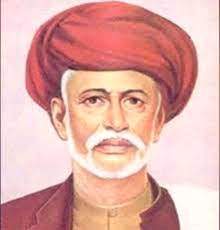Jotirao Phule | Caste Laws | An Analytical Study
Jotirao Phule | Caste Laws | An Analytical Study
Jotirao Phule | Caste Laws | An Analytical Study
‘Caste and Laws’ is a critical essay on the caste system in Indian society by Jotirao Phule, an Indian Marathi writer. In this essay, he has discussed how the Brahmins concocted and established the tradition of their supremacy over the other castes of society.
First, the author says about the advent of the Aryans (Brahmins) in India. He shows that the Brahmins are not natives of India. They were foreign and emigrated to India about three thousand years ago and settled down upon the plains of Hindu Koosh and the other adjoining tracts of the land. The fertility of the soil, the proverbial wealth of its people tempted the Aryans (Brahmins) to come to India. They came to India not as simple emigrants with peaceful intentions of colonization, but as a conqueror. They appear to have been a race imbued with a very high notion of self, extremely cunning, arrogant and bigoted. They designated themselves to be so.
After coming to the land they had to face resistance of the aborigines of India, but own the battle and subjugated the original inhibitors. They considered the aborigines of the land as Sudra which means insignificant. Since their advent to the land, they offered the greatest resistance in their power to their establishment in the country. From many customs traditionally handed down to us, it is evident that there had been a hard struggle for ascendency between the two races. Many fictions have been scattered over the sacred books of the Brahmins. The Brahmins concocted that they were the offsprings of the gods (divine being) and called the aborigines of the land to be Daityas ( Rakshasas) The author of the essay says that the original inhabitants with whom the earth-born Brahmins fought were not Rakshas but the protectors of the land. The Aryans believe in the incarnation of the god Vishnu or Brahma. It is believed that there were several incarnations of Brahma. One such incarnation was Purshram. He is believed to be the sixth incarnation of Brahma. Under his leadership, the Brahmins waged very protective wars against the aborigines to their entire control. Accounts of those conquests with a mass of incredible fiction are found in the books of the Brahmins. In some instances, they were compelled to emigrate. The author says that the cruelties and inhuman atrocities which Purshram committed on the Kshatriyas, the aborigines of the land, prove that he was more a fiend than a God.
Secondly, the author says about how the Aryans especially the Brahmins designed their scriptures and laws to establish their supremacy over the other castes. They wrote books and scriptures so cunningly that had paved the way for a smooth, easy and happy life for them. Their religious ordinances were written pointing directly to the Sudras (which they considered to be lower castes). The author put forwards some instances of how the superiority and excellence of the Brahmins are held and enjoined on the pain of Divine displeasure, as under:
The Brahmins have styled the Lord of the Universe, even equal to God himself. He is to be worshipped, served and respected by all. They made laws for themselves as:
A Brahmin can do no wrong.
The King can not kill a Brahmin though he commits all possible crimes.
To save the life of a Brahmin any falsehood may be told. There is no sin in it.
No one can take away anything belonging to a Brahmin.
A king, though dying with want, must not receive any tax from a Brahmin.
The feet of a Brahmin is holy.
A Brahmin may compel a man of the servile class to perform the servile duty because such a man is created by the almighty for the purpose of serving the Brahmins.
A Brahmin can not give spiritual counsel to a Sudra.
If a Sudra cohabits with a Brahminee adultress, his life is to be taken. But if a Brahmin goes even unto a lawful wife of a Sudra he is exempted from all corporal punishment.
The real objects in fabricating this falsehood were to dupe the minds of the ignorant and to rivet firmly on them the chains of perpetual bondage and slavery that their selfishness and cunning hand forged.
Thirdly the author goes on to put forward some suggestions for eliminating the deadly caste system from society.
The author says that only the spread of education can emancipate the lower classes of people from the cunning supremacy of the so-called Brahmins. The government must provide ample funds and privileges for educating the Sudras. The author of the essay justly said that the greater portion of the government’s revenue is derived from the peasant’s lower class. The higher or richer class contributes little or nothing to the nation’s wealth.
Along with this, the government must be conscious of narrowing the monopoly of the upper privileged classes. The lower classes should provide the privilege to get into public services.
The author advocates the establishment of schools in every village so that education may spread to all classes of people. It is because only education can eliminate caste discrimination in society.
In this essay, Phule has employed not an impassionate but dispassionate and factual style to demonstrate his theme. His language is simple and direct emphasized by quotations and coloured by instances. 0 0 0
Caste Laws
Read More: Guy de Maupassant’s Short Stroy ‘The Jewel’-An Analytical Study
Caste Laws
N. B. This article entitled ‘Jotirao Phule | Caste Laws | An Analytical Study’ originally belongs to the book ‘World Essay Criticism‘ by Menonim Menonimus. Caste Laws
Books of Literary Criticism by M. Menonimus:
- World Short Story Criticism
- World Poetry Criticism
- World Drama Criticism
- World Novel Criticism
- World Essay Criticism
- Indian English Poetry Criticism
- Indian English Poets and Poetry Chief Features
- Emily Dickinson’s Poetry-A Thematic Study
- Walt Whitman’s Poetry-A Thematic Study
- Critical Essays on English Poetry
- Tawfiq al-Hakim’s Novel: Return of the Spirit-An Analytical Study
- Tawfiq al-Hakim’s Novel: ‘Yawmiyyat Naib Fil Arayaf’-An Analytical Study
- Analytical Studies of Some Arabic Short Stories
- A Brief History of Arabic Literature: Pre-Islamic Period …
Books on Linguistics by M. Menonimus:
- A Brief History of the English Language
- Essays on Linguistics
- My Imageries
- Felicitous Expression: Some Examples
- Learners’ English Dictionary
Related Searches:
- Short Stroy Criticism
- The Indian English Short Story
- Individual and Society …
- ‘Deliverance’ by Premchand Analysis
- Summary of Rabindranath Tagore’s ‘The Exercise Book
- Short Story ‘Yellow Fish’ Essay Example
- Notes on Roger Mais’s ‘Blackout’
- ‘Blackout’ by Roger Mais
- ‘The Dog of Tetwal’ Saadat Hasan Manto
- The Dog of Tethwal
- ‘The Jewelry’ by Guy De Maupassant Analysis
- ‘The Jewels’ by Guy De Maupassant
- ‘The Necklace’ Essay
- Study Question ‘The Necklace’
- The Piece of String’ Analysis
- The Piece of String’
- A Summary and Analysis of James Joyce’s Eveline
- ‘The Verger’ Summary …











